In an era where urban living often means adapting to smaller spaces, the challenge of maximizing room function without sacrificing style can feel daunting. The heart of the home—a cozy kitchen and a welcoming living room—must seamlessly coexist, making creativity essential. Whether you’re navigating a quaint studio apartment or a compact home, blending these two vital areas can transform your living experience. In this article,we’ll explore innovative design strategies,smart storage solutions,and multifunctional furniture that breathe life into small kitchen and living room combos. Join us as we unveil inspiring ideas that not only optimize your space but also enhance your everyday routines, ensuring that every square inch serves a purpose without compromising on comfort or aesthetics.
Maximizing Vertical Space With Creative Shelf Arrangements for Small Spaces
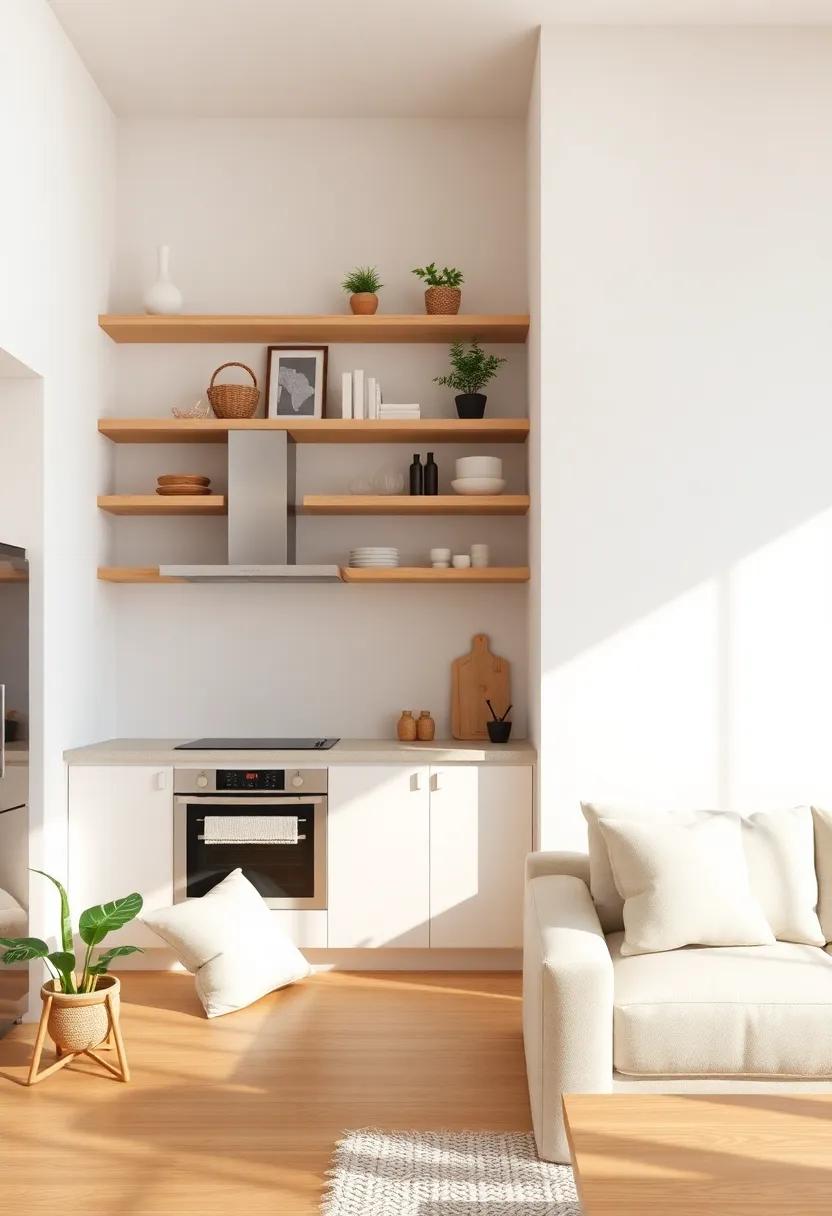
transforming vertical space can be a game changer in small kitchens and living rooms. One innovative approach is to utilize floating shelves, which not only saves floor space but also allows you to curate your personal style. These can be positioned above cabinets or along walls to create a visually appealing gallery of functional decor. Consider incorporating these ideas:
- Stacked Shelves: Build a staggered effect using different sizes and depths to add interest.
- Corner Shelves: Utilize neglected corners to display books, plants, or kitchen essentials.
- Open Shelving: Instead of traditional cabinets, use open shelving to create an airy feel while keeping items accessible.
Additionally,integrating multipurpose furniture can create a harmonious blend of design and practicality. As an example, a tall bookshelf can double as a pantry, making efficient use of vertical space. Adding baskets or decorative bins can definitely help keep items organized and visually appealing. Here’s a simple table illustrating some great options for maximizing storage:
| Storage Solution | Advantages |
|---|---|
| Wall-Mounted Racks | Easy access to frequently used items |
| Over-the-door Organizers | Utilizes frequently enough-overlooked spaces |
| Magnetic Strips | Saves drawer space by storing kitchen tools visually |
For more inspiration on maximizing vertical space, check out Apartment Therapy.
Integrating Multi-Functional Furniture to Enhance Comfort and Utility
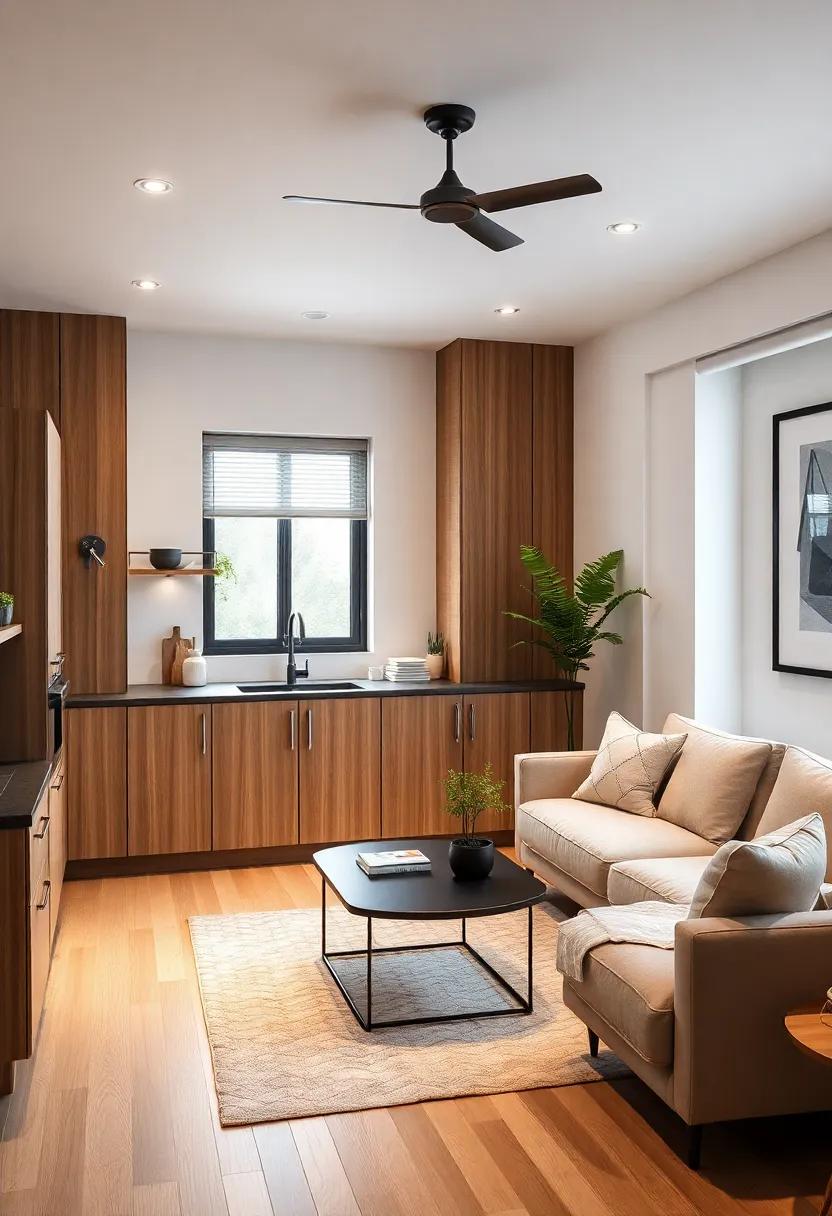
in small living spaces,the key to achieving both comfort and utility lies in the adoption of multi-functional furniture. Investing in pieces that serve more than one purpose can dramatically enhance your environment while ensuring it does not feel cramped. As a notable example, a sleek bench with built-in storage not only provides seating but also keeps your living area free from clutter. Similarly, a coffee table that can extend into a dining surface offers flexibility for entertaining guests without requiring separate furniture. Consider the following items:
- Murphy beds: These fold-away beds optimize floor space when not in use.
- Ottomans with storage: Perfect for hiding away blankets and games while doubling as extra seating.
- Convertible sofas: A chic sofa that easily transforms into a bed for guests.
Additionally, incorporating a modular shelving unit can provide versatility, allowing you to customize your layout based on your current needs. You can display books, plants, or decorative items while retrofitting the design for a workspace by adding a desk surface when necessary. This type of furniture adapts to your lifestyle, making it indispensable in a multi-functional setting. Explore more about optimizing small spaces at houzz. Below is a simple table outlining furniture options and their benefits:
| Furniture Type | Benefits |
|---|---|
| Murphy Bed | Maximizes floor space with a hidden bed. |
| storage Ottoman | Combines seating with hidden storage. |
| Convertible Sofa | Serves as both a couch and a bed. |
Creating Zones in Open Spaces to Define Living and Kitchen Areas
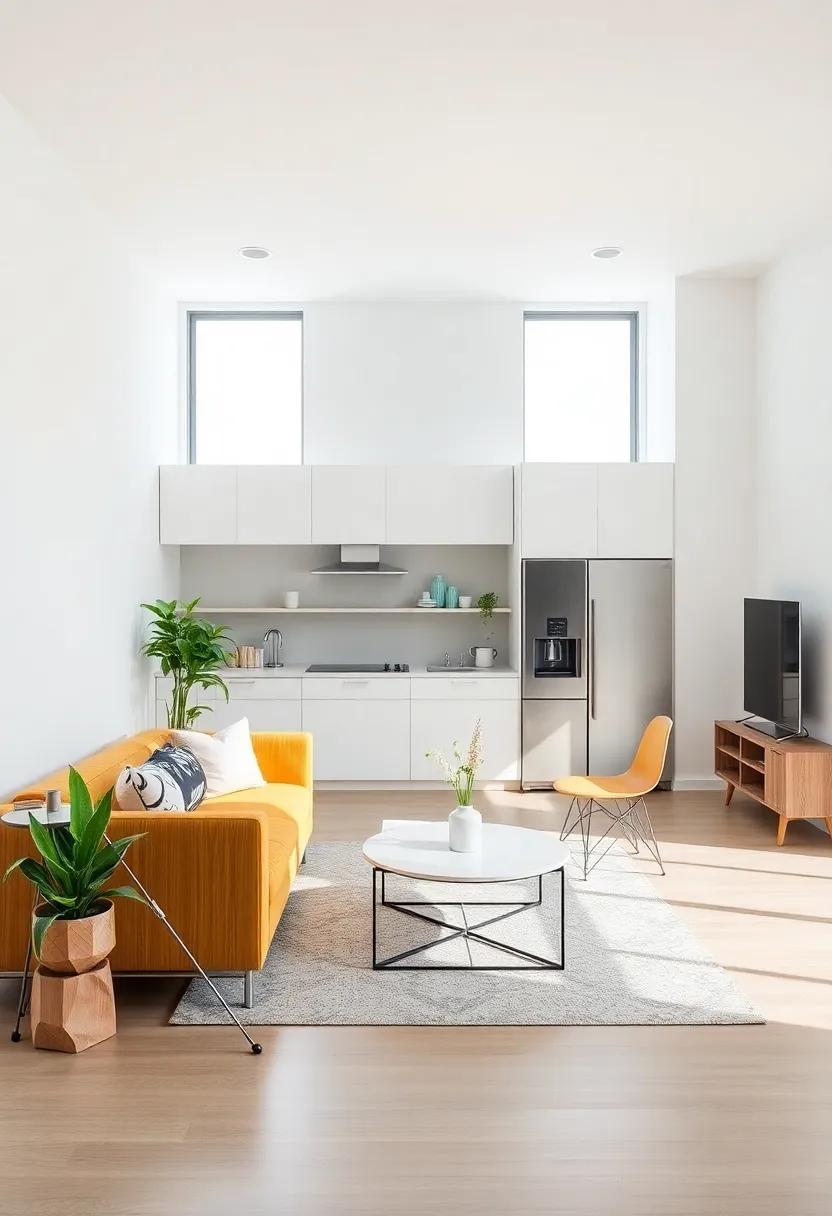
Creating distinct zones in open spaces is essential for enhancing functionality while maintaining a sense of cohesion. One effective way to achieve this is by utilizing furniture arrangement. Consider placing a sofa with its back facing the kitchen area, which not only provides a natural boundary but also creates an inviting conversational setting. You can further emphasize this division thru area rugs, which can delineate the living space and add warmth underfoot.Select rugs that complement the kitchen’s design, creating a seamless transition between areas. Additionally, using decorative screens or shelving units can provide visual separation and extra storage without sacrificing airiness.
Lighting is another key element in defining zones. Employ a mix of task and ambient lighting to highlight each area distinctly. As an example, pendant lights over the kitchen island can enhance functionality while recessed lights or floor lamps in the living space offer a cozy, inviting glow. Consider installing a dimmer switch to adjust the ambiance according to the time of day or occasion. this approach not only helps in defining spaces but also creates a harmonious flow throughout the room. For more inspirations on small space designs, check out resources on Houzz.
Stylish Storage Solutions That Blend with Your Interior Design
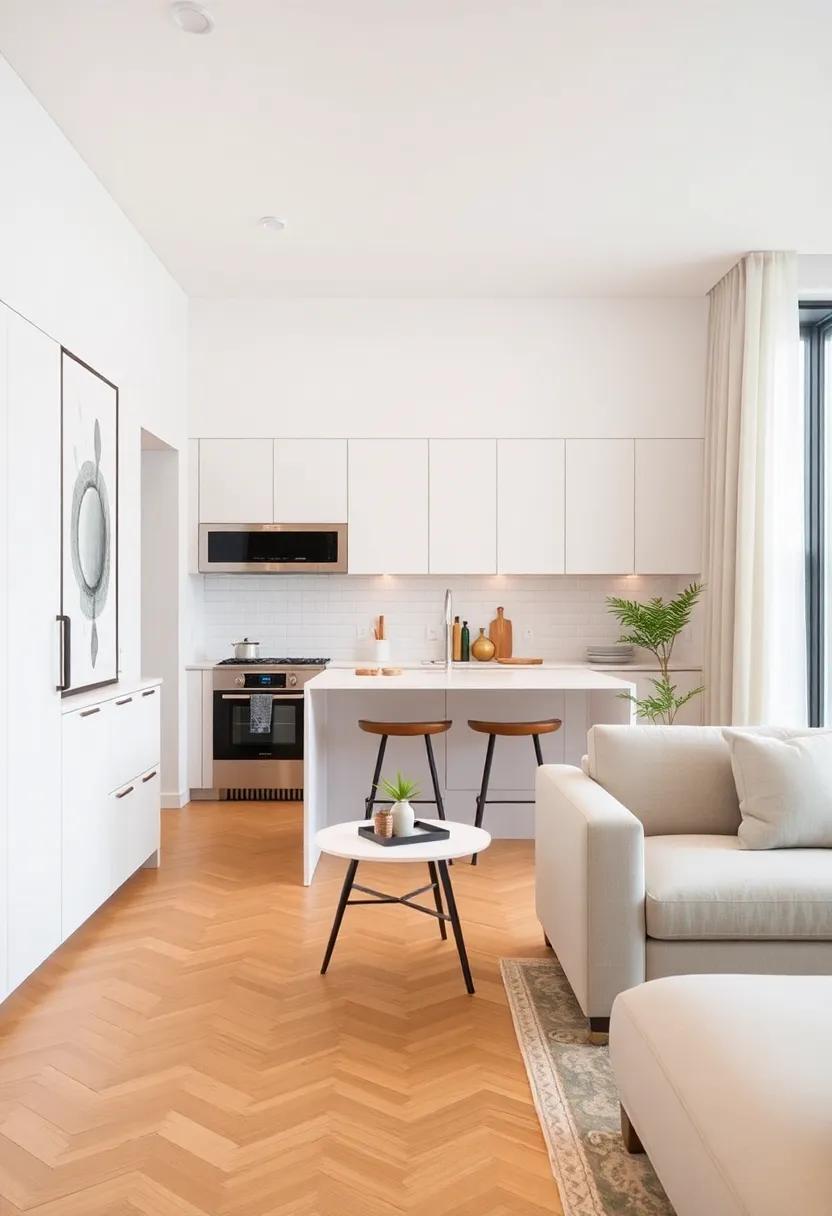
For those navigating the challenges of small kitchens and living room combinations, incorporating stylish storage solutions becomes essential. Consider using a combination of floating shelves, multi-purpose furniture, and decorative baskets that not only serve a utilitarian function but also complement the overall aesthetic of your space. by selecting pieces in cohesive colors and materials, you can maintain a seamless look. Options like a chic ottoman with hidden storage or a narrow console table can beautifully hold your essentials while adding a touch of elegance. personalization is key—choose storage that reflects your style, whether it’s a touch of modern minimalism or a warm rustic charm.
To maximize vertical space and keep the floor area clear, introducing wall-mounted cabinets can be a game-changer. Pair them with decorative elements to create visual interest.Moreover, incorporating pull-out drawers or a kitchen cart can provide additional functionality without overwhelming the space. Check out some innovative ideas for organizing your kitchen and living area on platforms like Houzz. With the right balance of beauty and practicality, your home can feel more spacious while showcasing your unique flair.
Choosing Color Palettes That Open Up Small Living Areas
When it comes to small living areas, the right color palette can create an illusion of space and airiness. Light colors such as soft whites, pastels, and pale grays can reflect more natural light, making rooms appear larger and inviting. Consider using a monochromatic scheme with varying shades of the same color to add depth without overwhelming the senses. Accents in bolder hues,like navy blue or forest green,can provide a striking contrast without making the area feel cramped or closed off.
A well-planned combination of colors can also help delineate spaces in open-concept designs. As an example, using cool tones in the kitchen and warm tones in the living room creates a natural separation while maintaining harmony. Here are some useful tips for selecting your color palette:
- Choose reflective materials like glass or glossy finishes to amplify light.
- Incorporate earthy tones to add warmth, creating a cozy atmosphere.
- Use accessories like cushions or art pieces to pop color without overwhelming the space.
Consider organizing your palette with a simple color table that showcases how hues can complement each other:
| color | Effect |
|---|---|
| Soft White | Enhances brightness, expands visual space. |
| Pale Blue | Calming effect, promotes relaxation. |
| Warm Beige | Adds warmth, encourages coziness. |
To explore more ideas and examples of effective color palettes, visit Houzz.
utilizing Under-Furniture Areas for hidden Storage and Organization
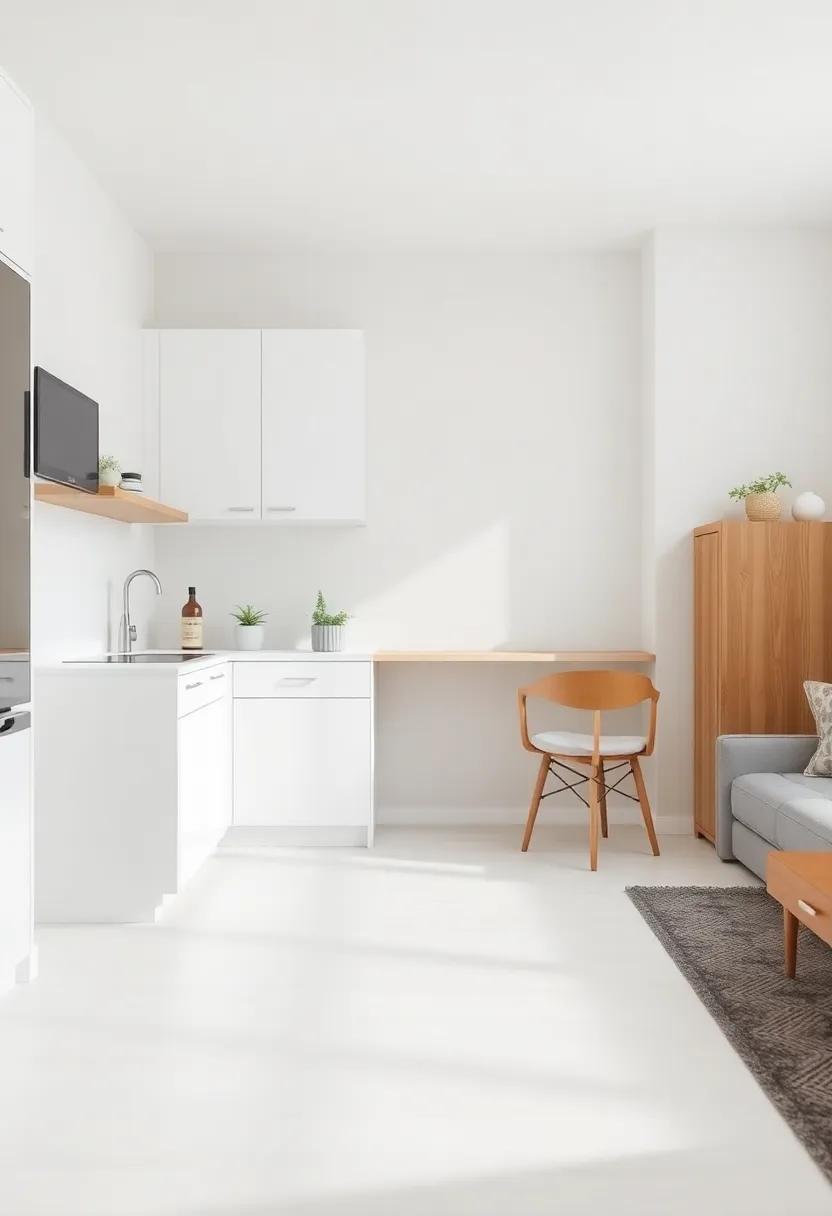
Transforming frequently enough-overlooked areas beneath furniture can substantially enhance both storage and organization in your kitchen and living room. Consider utilizing the space under couches, beds, and tables as the ultimate hiding spots for various items. Here are a few smart storage solutions:
- Storage Bins: Invest in decorative bins that can slide easily under sofas or beds, keeping items like blankets, books, or games tucked away but accessible.
- Dresser Drawers: Use drawers of repurposed dressers or sideboards as under-table storage for cutlery, placemats, or other dining essentials.
- Rolling Carts: A slim rolling cart can be tucked under a console table and easily rolled out for a mini-bar or kitchen accessory station.
In addition to enhancing aesthetics, utilizing these under-furniture areas can definitely help maintain a clutter-free environment. You can also create a small listing of what lives where to maximize your efficiency. This simple table can definitely help you keep track:
| Furniture Type | Storage Purpose |
|---|---|
| Sofa | Blankets & pillows |
| Bed | Seasonal clothes or shoes |
| Dining Table | Table linens & dishware |
By tapping into these hidden spaces, you not only optimize your home’s functionality but also create an organized oasis in or else chaotic areas. For more innovative storage ideas,explore resources available on Apartment Therapy.
Incorporating Natural Light to Make Spaces Feel Larger and Airy
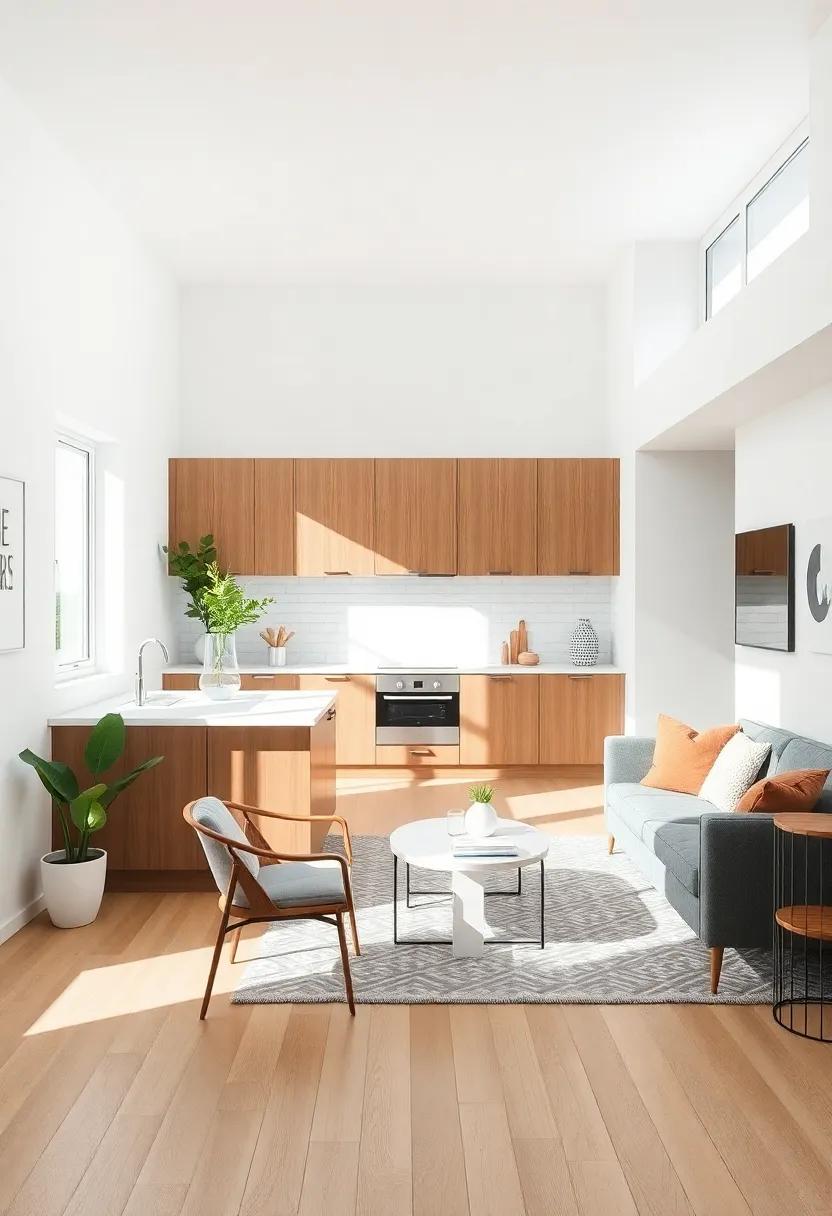
Utilizing natural light in small kitchen and living room combos not only elevates the overall aesthetic but also contributes to a sense of openness. By choosing sheer window treatments, you can allow sunlight to filter in, creating a warm and inviting atmosphere. Additionally, consider the strategic placement of mirrors to reflect light, enhancing the feeling of spaciousness. Some effective strategies include:
- Open shelving: This design choice allows light to flow unobstructed, while also creating a visually appealing display of kitchenware.
- Light colors: Opting for lighter shades on walls and furniture can amplify the effect of natural light, making the space feel airier.
- Glass elements: Incorporating glass doors or obvious furniture can definitely help maintain sightlines, further opening up the area.
Another impactful way to harness natural light is through dynamic lighting solutions that complement the daylight. Installing skylights or larger windows can drastically alter the ambiance of your combined living space. Consider creating a focal point with a well-lit area, such as a cozy reading nook by a window or a brightly lit kitchen island.Below is a simple table highlighting various ways to enhance natural light usage:
| Enhancement | Benefit |
|---|---|
| Sheer curtains | Maximized light entry |
| Mirrors | Illusion of depth |
| Wood finishes | Warmth and texture |
For expert tips on maximizing natural light in your home, check out Architectural Digest.
Adopting Minimalist Designs to Promote Clarity and Space
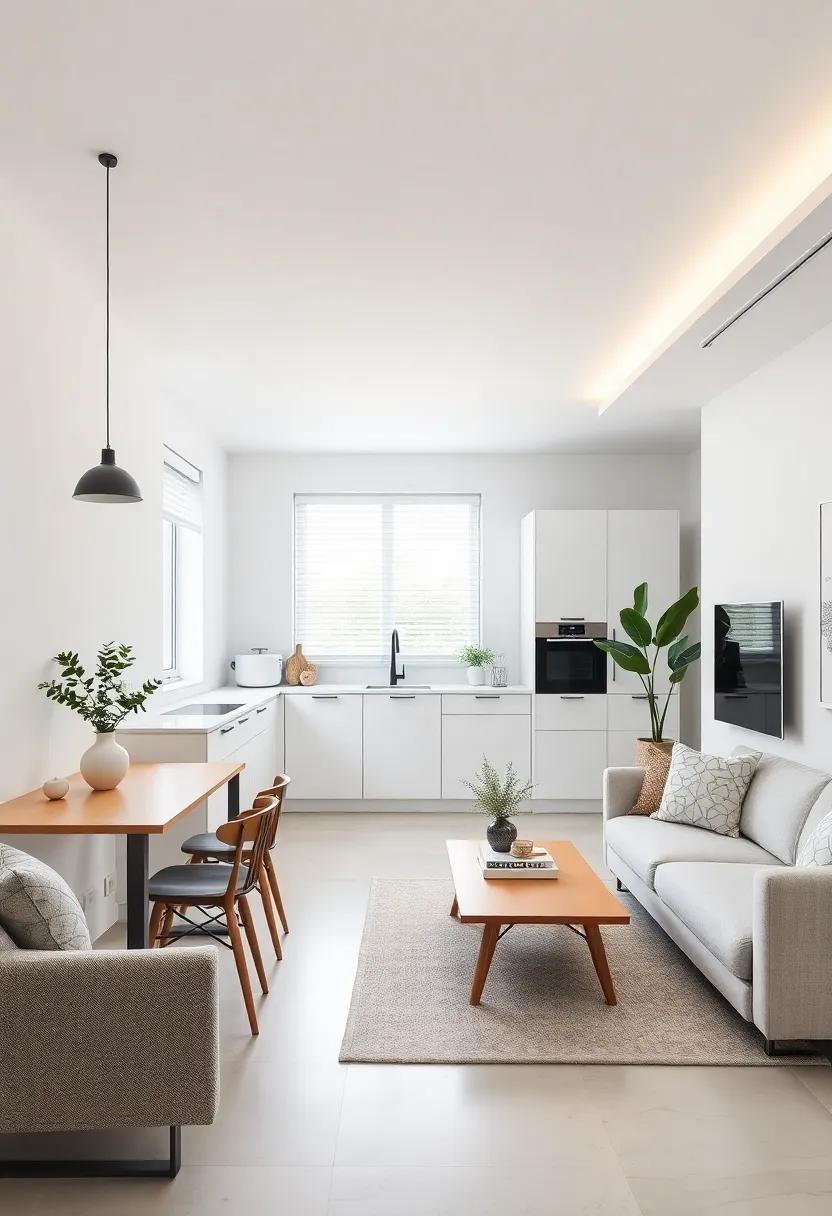
Embracing the essence of simplicity can transform a cramped kitchen and living room into a sanctuary of tranquility. Often, less truly means more. Minimalist designs emphasize functional furniture pieces that not only serve a purpose but also enhance the flow of space. Key elements to incorporate include:
- Neutral Color Palettes: Soft whites and muted tones create an airy feel.
- Multi-Functional Furniture: Consider a coffee table that doubles as storage.
- Open shelving: Showcase attractive dishware while keeping the countertops clear.
- Decluttering Strategies: Regularly assess items that are no longer needed to maintain an organized feel.
One effective approach is to utilize transparent elements, like glass tables or acrylic chairs, which visually expand the area while maintaining a clean aesthetic. A well-planned layout can further amplify this effect. Below is a simple comparison of furniture choices that align with minimalism:
| Furniture Type | Minimalist Choice | Traditional Choice |
|---|---|---|
| Seating | Streamlined benches | Bulky armchairs |
| Tables | Compact, extendable tables | Large fixed tables |
| Storage | Floating shelves | Heavy cabinets |
By integrating these minimalist principles, your kitchen and living room combo can transcend conventional boundaries, allowing for not just physical space, but also a more organized and peaceful atmosphere. For additional inspiration on minimalist interiors, check out Apartment therapy.
embracing Modular Furniture for Flexible Living Room and Kitchen Configurations
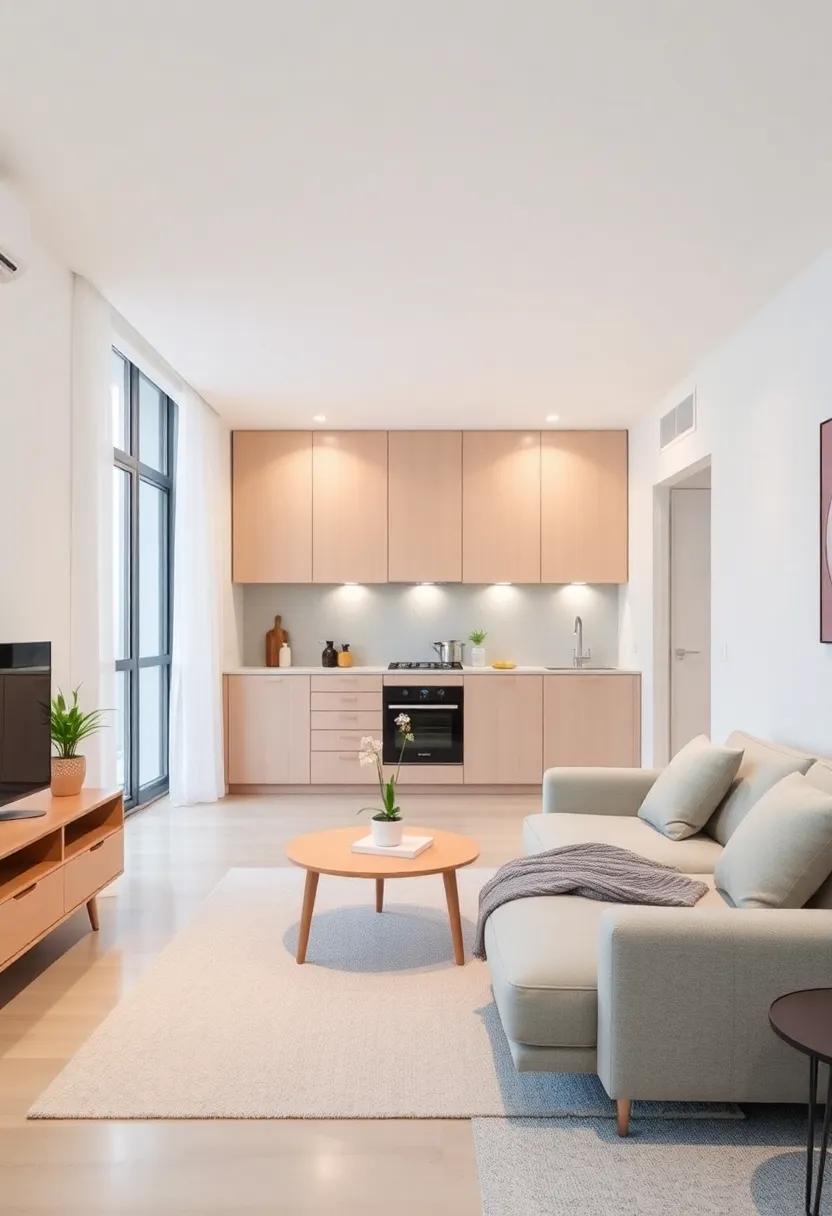
Modular furniture has revolutionized how we perceive and utilize spaces, especially in small kitchen and living room combos. This adaptable design trend allows homeowners to mix and match pieces according to their changing needs, ensuring maximum functionality without sacrificing style. Whether you’re looking for a pull-out sofa bed or a dining table that doubles as a workspace, the versatility of modular options can definitely help create an environment that evolves with your lifestyle. Consider the following advantages of integrating modular furniture:
- Space Efficiency: Easily rearrange components to focus on flow and accessibility.
- Customization: Pick and choose pieces to suit your exact measurements and preferences.
- storage Solutions: Utilize cleverly designed units that hide clutter while maintaining aesthetic appeal.
By embracing a modular approach, it becomes easier to transition between daily activities—whether that’s entertaining guests in a cozy living area or preparing meals in a functional kitchen. This flexibility is particularly beneficial when space is at a premium. With elements that can be reconfigured at a moment’s notice,you can define your living room and kitchen without compromising on comfort. For practical guidance on selecting the right modular pieces, check out resources from Houzz, which offers expert insights and design inspiration.
Crafting an Inviting Atmosphere with Thoughtful Lighting Choices
When designing a cozy kitchen-living room combo, the right lighting can transform the space from ordinary to unusual.Consider a layered lighting approach, which combines ambient, task, and accent lighting to create depth and warmth. Here are some thoughtful lighting choices to elevate your atmosphere:
- Pendant lights above the dining area can serve as focal points while providing ample illumination for meal planning and gathering.
- Under-cabinet lighting in the kitchen can enhance visibility while making the countertops feel more inviting.
- Wall sconces can add sophistication and soften the overall look when used alongside art or mirrors.
In small spaces, maximizing the influence of lighting is crucial.Opt for dimmable switches to adjust the mood as needed, allowing for everything from radiant, lively meals to relaxed evenings.Consider incorporating mirrors strategically to reflect light and create an illusion of a more spacious environment. A well-placed table can shine in the soft glow of a table lamp, offering both functionality and style, particularly in a multifunctional setting. For more design inspiration, explore the resources available at Houzz.
Using Area rugs to Segregate Spaces While Adding Warmth
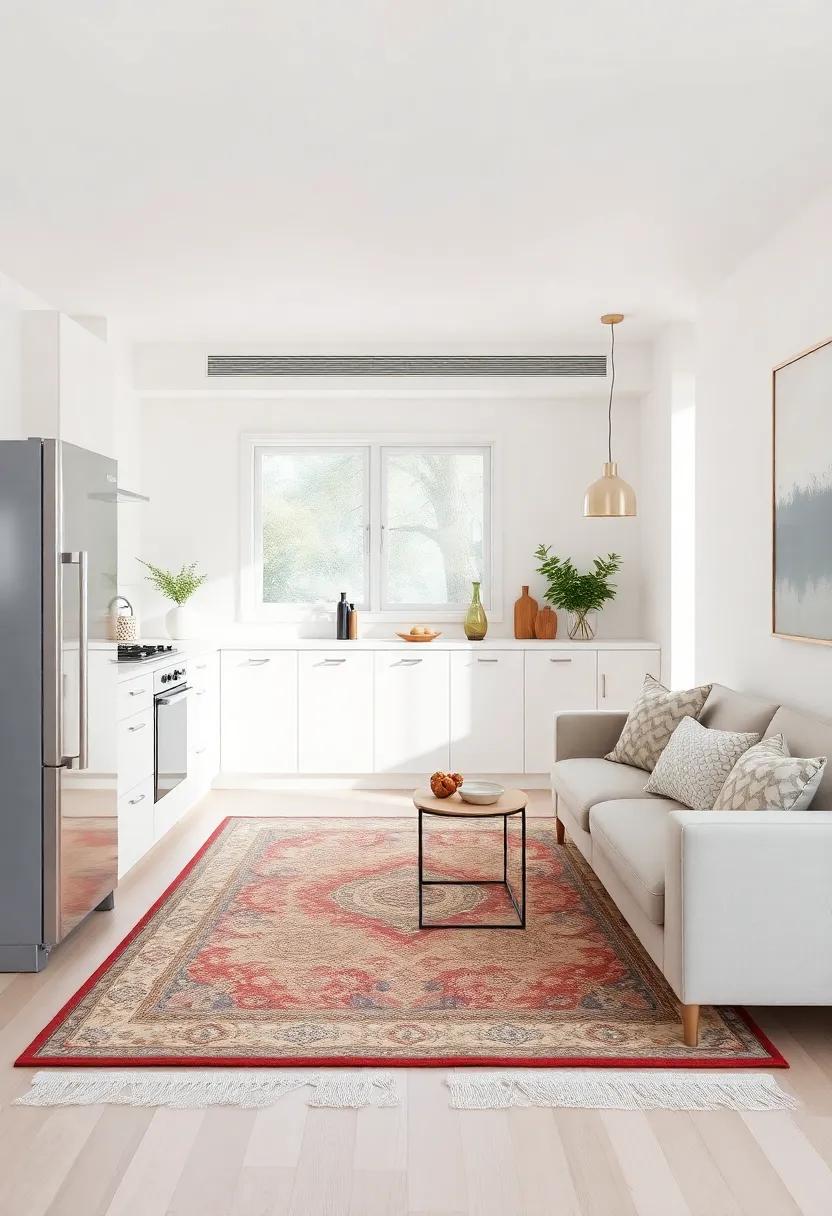
Area rugs serve as an effective tool for delineating spaces in open-concept kitchen and living room layouts. By selecting rugs that complement the color palette of both areas, you can visually separate the zones without the need for physical barriers. For instance,a plush,textured rug under the coffee table creates an inviting center for the living room,while a durable,stain-resistant rug in the kitchen adds functionality and warmth. When choosing the right sizes, consider placing the front legs of your furniture on the rug to anchor the space, lending a cohesive feel to your interior design.
When using rugs to enhance your small space, think about layering textures and patterns to introduce depth and interest.Consider these tips for a prosperous rug arrangement:
- Choose rugs that are easy to clean, especially for kitchens where spills are common.
- Opt for bold geometric designs to create an eye-catching divide between the kitchen and living area.
- select complementary colors to ensure harmony between spaces while still defining each area.
- Experiment with different shapes – round rugs can soften angular spaces and encourage flow.
Creating a visual barrier with area rugs not only maximizes your space but also adds a layer of comfort and style that enhances your home’s overall aesthetic. For further inspiration on interior design, check out Houzz.
Implementing Open Shelving to Display Culinary and Decorative Items
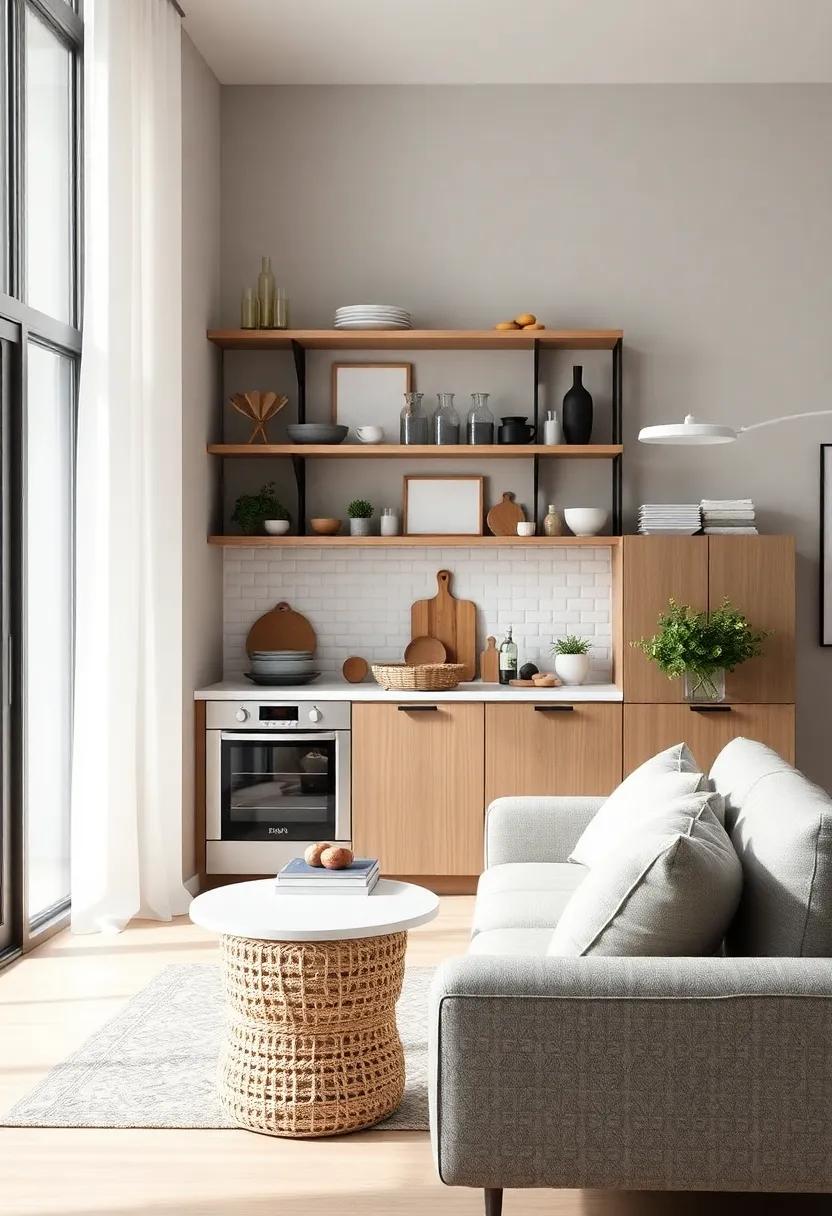
embracing open shelving can transform your kitchen and living room space into a harmonious blend of style and functionality. By opting for floating shelves or mounted racks, you can save precious floor space while creating an attractive display for both culinary and decorative items. This innovative strategy not only enhances accessibility but also allows your favorite items to double as decor. Consider showcasing a selection of beautifully arranged cookbooks,along with vibrant glassware and colorful ceramics,to create an inviting centerpiece that reflects your personality.
To execute this concept effectively, you might want to organize your shelves using a balanced approach. Create zones for different types of items, such as:
- Culinary Essentials: Pots, pans, and frequently used spices.
- Decorative Pieces: Artful platters, decorative jars, and potted herbs.
- Personal Touches: Family heirlooms, photos, or travel souvenirs.
Strategically placed LED lighting can elevate the aesthetic appeal even further, highlighting your curated selections and bringing warmth to the atmosphere.For more inspiration on how to choose the right styles and materials for your open shelving, check out The Spruce.
Designing Your Kitchen with Hidden appliances to Minimize Clutter
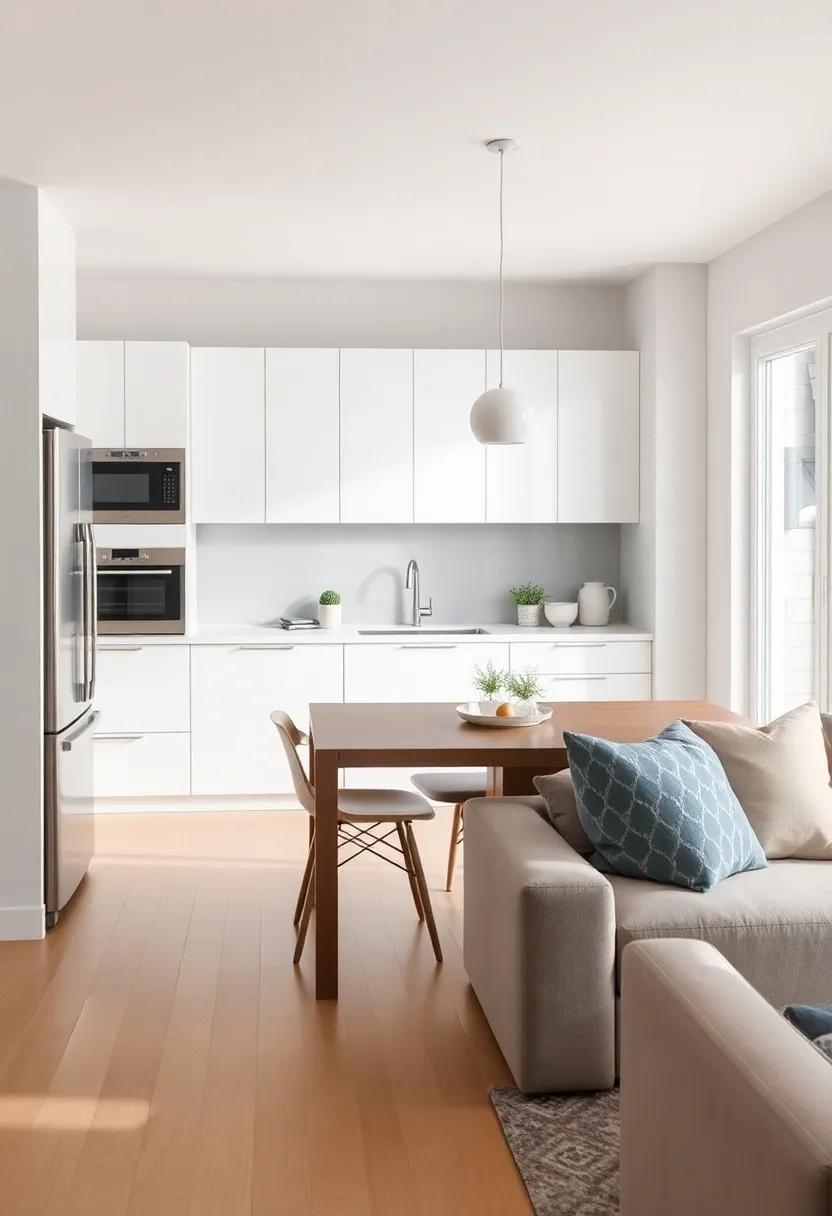
In a small kitchen and living room combo, achieving a sense of spaciousness while maintaining functionality can be a real challenge. one effective solution is to incorporate hidden appliances, seamlessly integrating them into the cabinetry. This not only creates a streamlined look but also minimizes visual clutter. Consider using features like:
- Pull-out cabinets for appliances such as mixers or food processors.
- Drawer-style dishwashers that fit under countertops.
- Retractable hoods that can be set back into cabinetry when not in use.
Another innovative approach is to choose appliances that blend with your decor. For example, panel-ready refrigerators can be customized with cabinetry-style doors, creating a seamless aesthetic. Additionally, multi-functional appliances can save valuable counter space by combining several cooking methods in one unit. Embrace technology with built-in solutions like:
- Microwave drawers,which double as cabinet space.
- Induction cooktops that can be integrated into your countertop.
- Smart ovens that offer remote control capabilities.
By thoughtfully designing your kitchen around hidden appliances,you can maintain an open and airy feel while ensuring that everything you need is easily accessible. For more innovative storage ideas, explore resources at Apartment Therapy.
Incorporating plants for a Fresh and Lively Touch in Small Areas
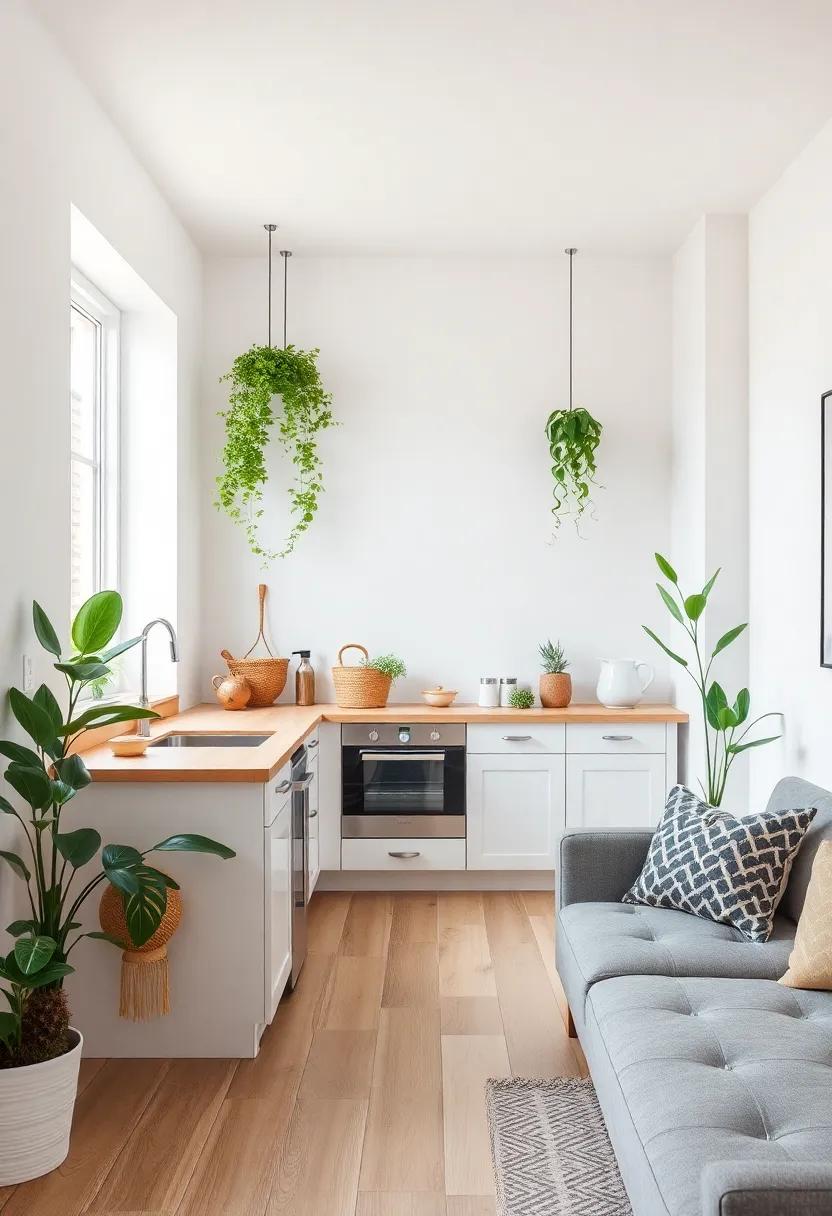
Integrating greenery into small spaces not only uplifts the aesthetics but also purifies the air, creating a more vibrant living environment.In compact kitchens and living rooms, select the right plants that thrive in minimal sunlight and require little maintenance. Consider options such as:
- Succulents: Perfect for window sills, these hardy plants add a pop of color without overwhelming the space.
- Snake Plants: Ideal for corners, they offer narrow vertical growth that provides a striking contrast against flat surfaces.
- Pothos: With trailing vines,they can be placed on shelves or hung from the ceiling,creating a cascading effect.
Utilize creative containers to maximize your plant display while complementing your decor. Vertical gardens,such as wall-mounted planters or ladder designs,can transform an empty wall into a lush focal point.Additionally, consider establishing a mini herb garden on your kitchen counter. This not only enhances the look but also brings fresh flavors to your meals. A simple setup can include:
| Herb | Sunlight Needs | Container Ideas |
|---|---|---|
| Basil | Medium | Terracotta pots |
| Mint | Low | hanging baskets |
| Chives | Medium | Glass jars |
You can explore more on the benefits of indoor plants at Garden Design.
Optimizing Wall Space for Additional Storage and Functionality
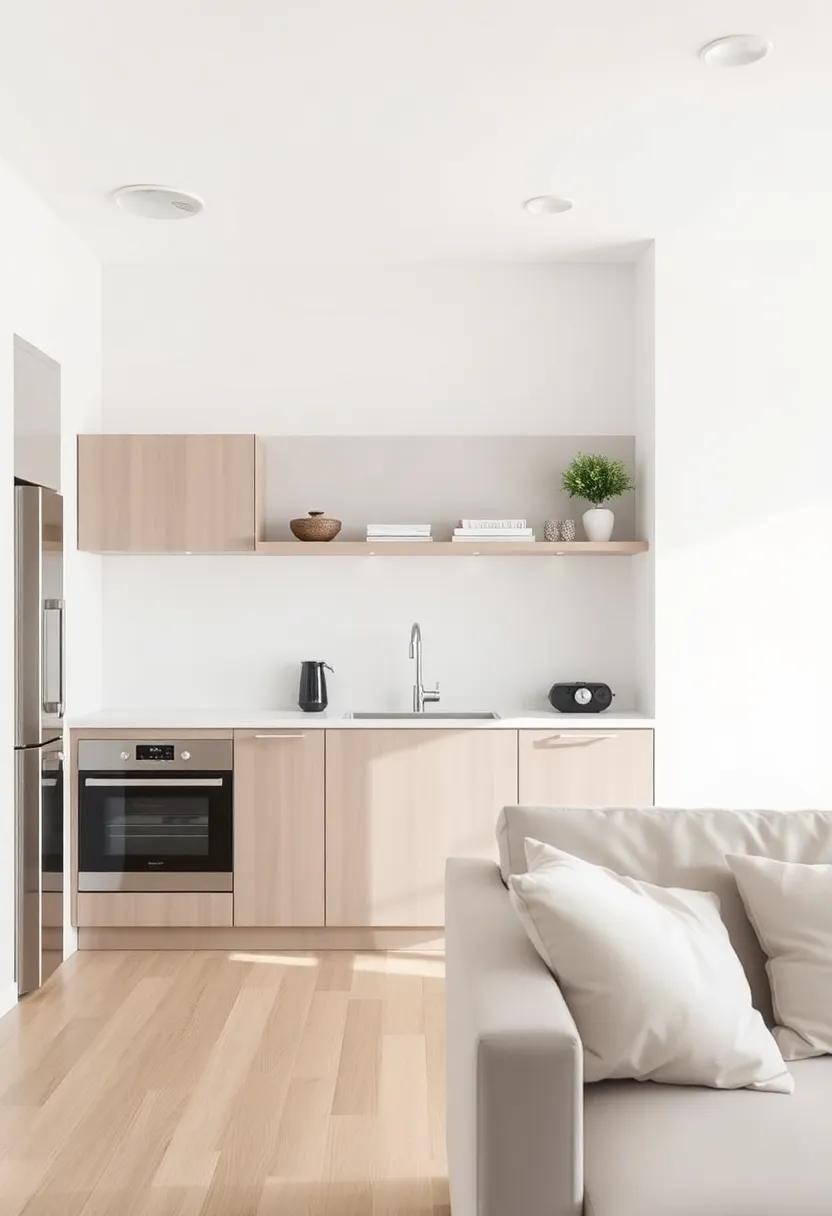
creative Use of Vertical Storage
When it comes to a small kitchen and living room combo,utilizing vertical space can be a game changer. Shelving units that extend from floor to ceiling not only draw the eye upward but also provide ample storage for books, kitchen essentials, or decorative elements. Consider the incorporation of floating shelves or wall-mounted racks to display spices or favorite cookbooks. Select shelves that complement your room’s decor, and use open shelving to create an airy feel while keeping items within easy reach.
Transforming Walls into Functional Areas
Harnessing wall space for functionality extends beyond mere storage. Think about integrating a fold-down table or a murphy bed into the design to maximize utility without sacrificing space. A pegboard in the kitchen can serve as an organized catch-all for utensils and pots, while a chalkboard wall can provide customizable menus or grocery lists. Check out Houzz for inspiration on turning your wall into a center for creativity and organization.
| Idea | Description |
|---|---|
| Vertical Gardens | Install wall-mounted planters for a touch of greenery. |
| Small Hooks | Use small hooks for hanging utensils or keys for easy access. |
| Multi-functional Furniture | Choose items that serve more than one purpose, like a bench with storage. |
Exploring Built-In Solutions for Seamless Space Integration
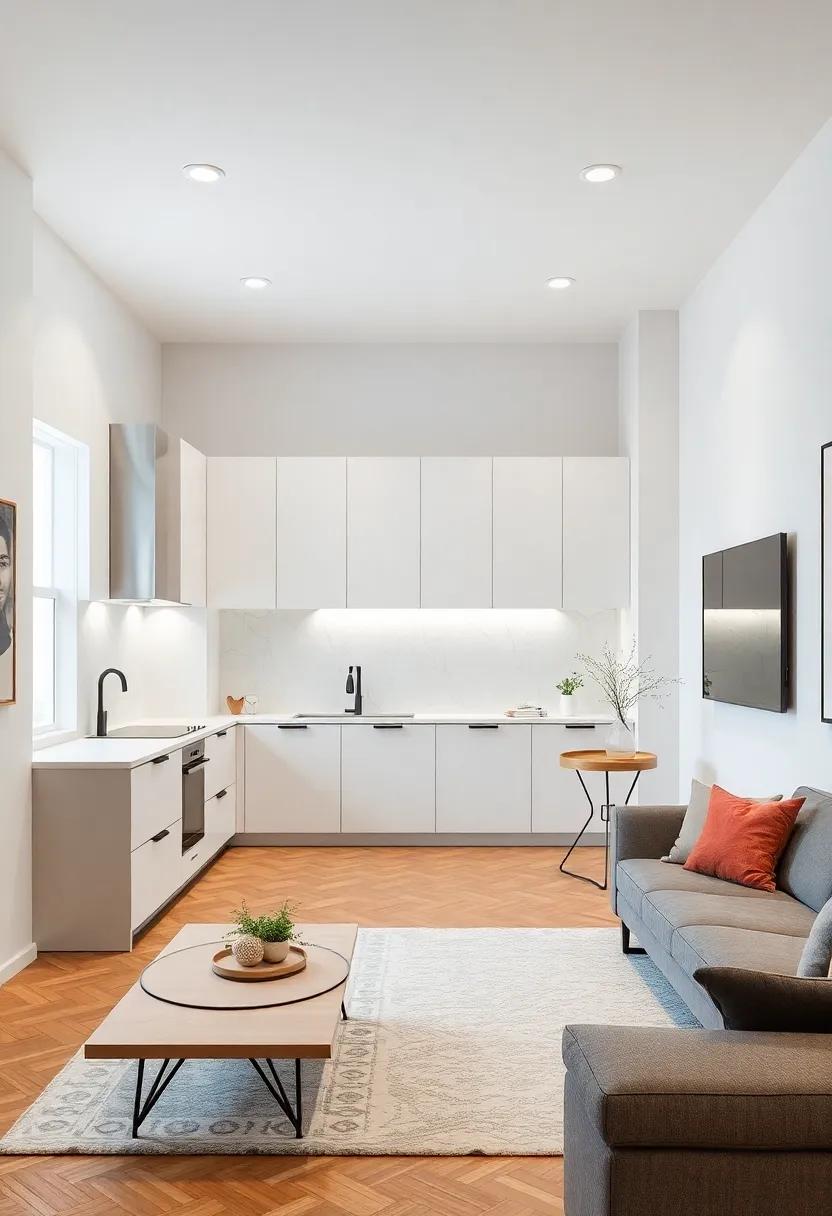
when it comes to small kitchen and living room combinations, built-in solutions can transform challenging spaces into functional masterpieces.By utilizing elements such as built-in shelving, custom cabinetry, and integrated appliances, you can seamlessly blend functionality with aesthetics. Consider options like:
- Murphy beds that fold away to create space during the day.
- Convertible furniture, such as ottomans with storage or dining tables that extend.
- Open shelving that can serve as a visual separator while providing additional storage.
Additionally, incorporating multi-functional designs can greatly enhance usability. For instance, a narrow breakfast bar can serve as both a meal prep area and a casual dining spot. A cohesive color palette, paired with smart lighting solutions, can make these compact areas feel larger and more inviting. Check out the various designs and ideas available on sites like Houzz for inspiration.
| Feature | Benefits |
|---|---|
| Built-in Storage | Maximizes space efficiency and declutters the environment. |
| Convertible Furniture | Adapts to various needs, saving both space and cost. |
| Integrated Appliances | Offers a streamlined look, making the area feel more open. |
Creating Illusion of Depth with Mirrors and Strategic Decor Placement
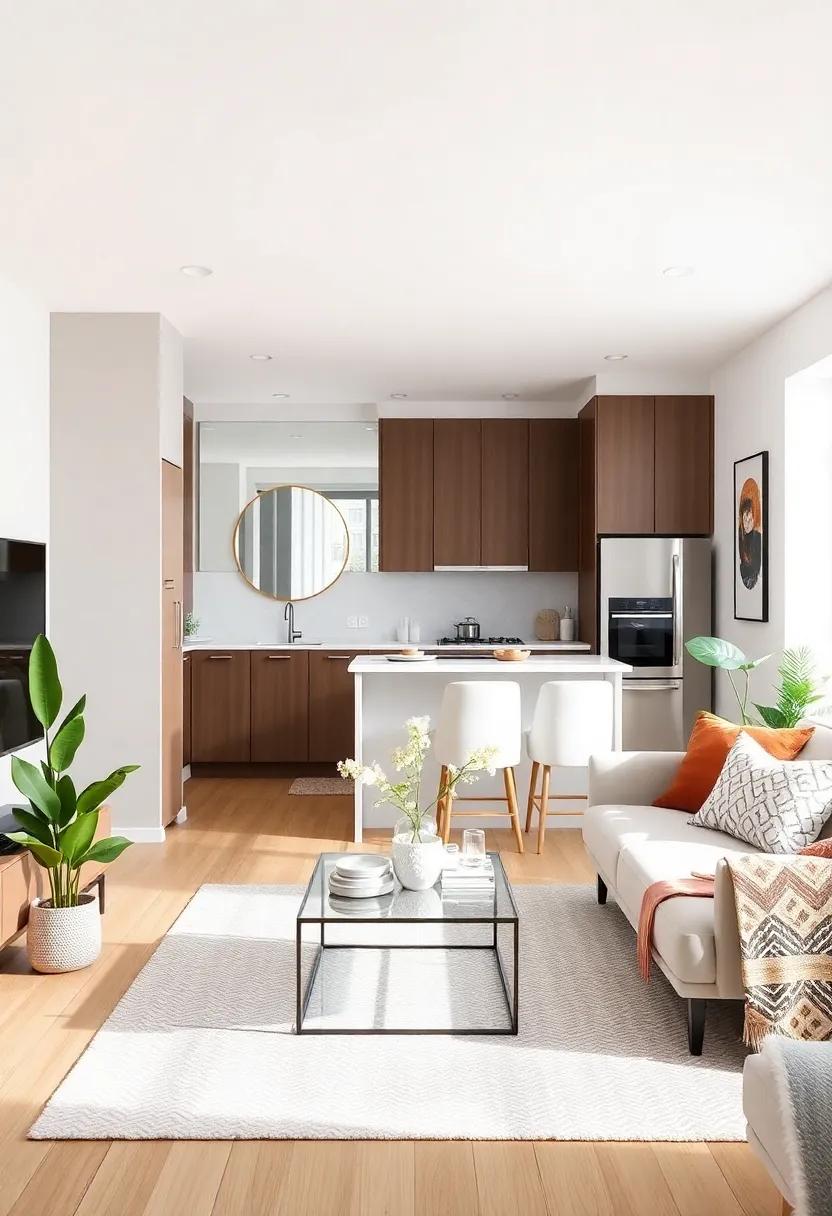
Utilizing mirrors can significantly enhance the perception of space in compact areas. Mirrors reflect light and create a sense of depth, making your small kitchen and living room feel more open and airy. Consider placing a large mirror on the wall opposite a window to maximize natural light and visibility. Additionally, incorporating mirrored furniture or decor can add a touch of elegance while amplifying this effect. Whether it’s a stylish coffee table, decorative wall hangings, or even accents like picture frames, these strategic placements can transform the overall atmosphere of your living spaces.
In combination with mirrors, the art of decor placement plays a crucial role in maximizing space.Using vertical space is essential—install shelves above countertops and furniture to draw the eye upwards. You can also opt for multifunctional furniture, such as an ottoman that doubles as storage. Use light colors for your decor and furnishings to foster a clean and unobtrusive aesthetic. Consider the following options when arranging decor in your kitchen and living areas:
- Wall-mounted herb gardens to save counter space
- Open shelving units to display stylish dishware
- Artistic backsplash designs for visual interest
By strategically layering these elements, you can create an inviting environment that showcases both functionality and style.
Selecting Scaled-Down Appliances for Style Without sacrificing Efficiency
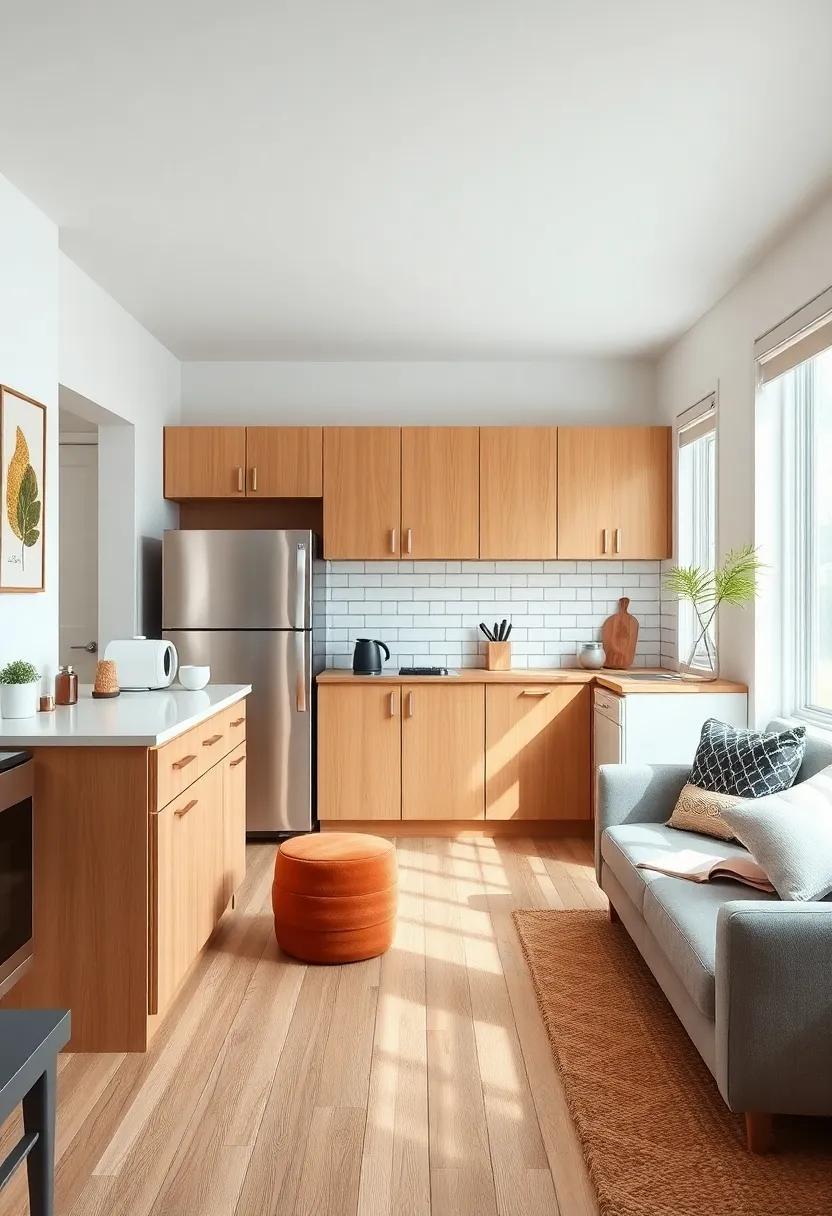
When designing small kitchen and living room combos,choosing scaled-down appliances is crucial to blending style and efficiency seamlessly. Compact appliances can enhance the aesthetic of your space while maximizing functionality. Consider opting for multi-functional appliances that serve multiple purposes, such as a microwave that also functions as an air fryer. This not only helps save space but also provides versatility in meal preparation. Look for options that feature a sleek design and modern finishes, so they integrate effortlessly with your decor.
Prioritize energy-efficient models that don’t compromise on performance. Appliances with high energy ratings might initially come with a higher price tag, but they ultimately save more in utility costs. As you evaluate your options, compile a list of must-have features, and seek appliances that align with your cooking habits and lifestyle. For instance, a compact dishwasher that can fit under the counter still allows for easy cleanup, ensuring your space remains tidy without the clutter of larger units. Check out Energy.gov for tips on selecting energy-efficient appliances that meet your specific needs.
Building a Cohesive Design with Balanced Decor for Small Combos
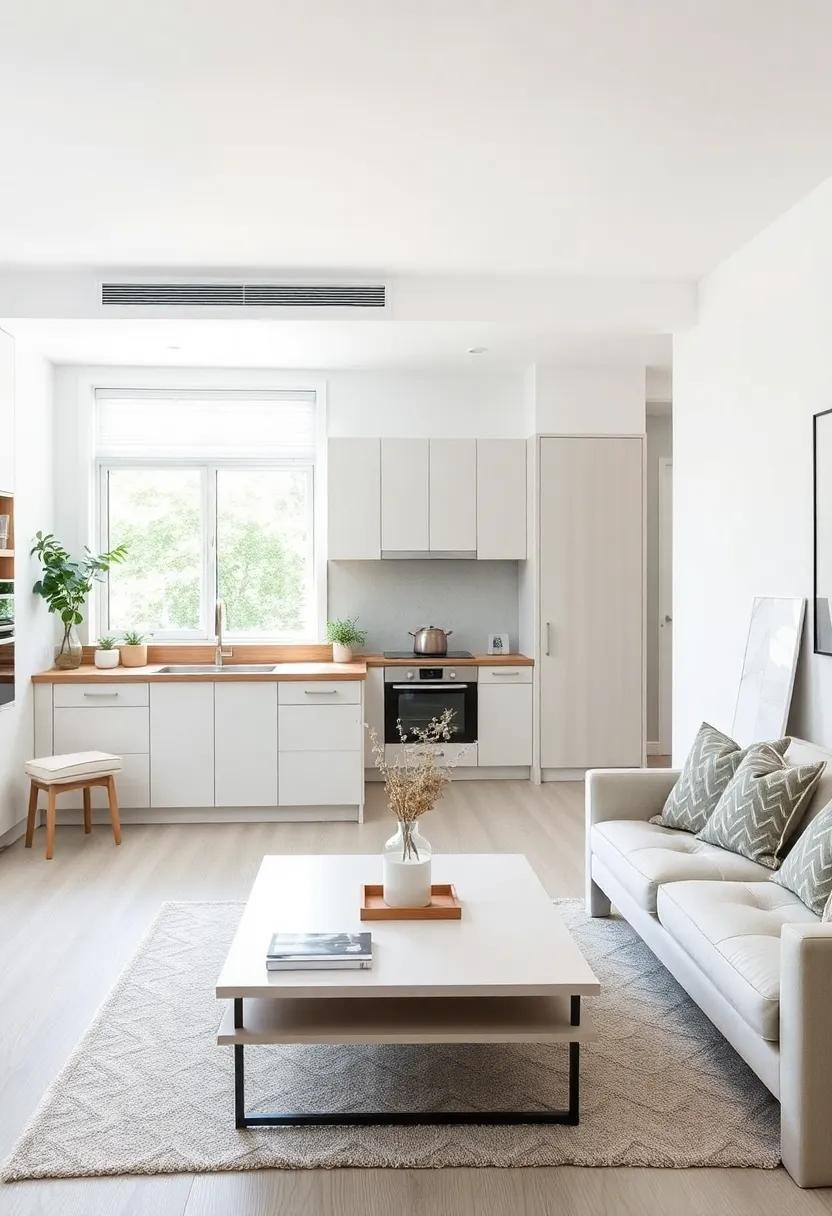
Creating a unified design in small kitchen and living room combos requires intentionality and thoughtful selection of decor elements. To achieve harmony, consider using a cohesive color palette that ties both spaces together. Soft neutrals and pops of color can create a warm atmosphere while ensuring the areas feel connected. Additionally, selecting furniture and accents that complement each other will enhance the flow. Key strategies include:
- furnishing with Minimalism: Choose streamlined furniture that doesn’t overpower the area.
- Layering Textures: Incorporate various materials, such as wood, metal, and textiles, to add depth without cluttering the space.
- Strategic Lighting: Use a combination of ambient and task lighting to define each area while maintaining continuity.
Another effective way to balance decor in compact living environments is by utilizing multifunctional furniture and decor pieces. Incorporating items that serve dual purposes, like ottomans with storage or foldable tables, can drastically reduce clutter while enhancing functionality. Consider arranging elements in a way that maximizes visual space, such as using vertical storage solutions or floating shelves. To facilitate an organized design, think about:
- Color Coordination: Keep a similar style across furniture and decor for a polished look.
- Open Shelving: Display curated items that reflect your style without crowding the surface.
- Soft boundaries: Use rugs or furniture arrangements to subtly define each area while keeping everything intertwined.
for more inspiration on small space decor, visit Apartment Therapy.
the Conclusion
the art of maximizing space in small kitchen and living room combos is not just about clever design; it’s about cultivating an environment that reflects your style and meets your practical needs. By embracing multifunctional furniture, utilizing vertical storage, and incorporating creative layout strategies, you can transform even the coziest of corners into a harmonious and efficient living space.Remember,every square inch matters,and with a little creativity,your small areas can be both functional and gorgeous. So, whether you’re hosting a dinner party or enjoying a quiet evening at home, let your unique solutions shine through and create a space that truly feels like the heart of your home.Happy decorating!
As an Amazon Associate I earn from qualifying purchases.

